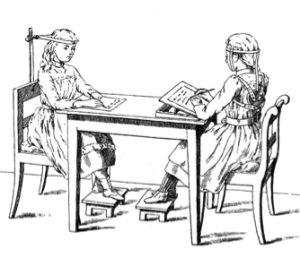Course Aims/Purpose and Objectives
Theorists focusing on educational research and cultural studies have increasingly emphasized the significance of ‘understanding media’, that is, of critically examining the media forms (face-to-face oral speech, pictures, theatrical staging, writing and print technologies, photography, moving pictures, TV and video, chalk boards and overhead projectors, filmstrips, hypertext systems, multimodal web-based media, social media, mobile apps, and digital games… ad infinitum…) through which content and/or information is formally represented, communicated, organized and received or procedurally interacted with.
As McLuhan famously put decades ago, ‘the medium is the message’, and as Neil Postman translated this in the late 1960s for educational contexts, it is the formal process – the pedagogical medium and form of experience, inquiry, action, making, and doing – that shapes the ‘content’ of learning, knowledge and/or know how. Through this lens, it becomes possible to see all pedagogy, all educational interaction, as mediated, and to critically approach pedagogical/communicative forms – even our most common-sense educative methods and practices – as ‘techne’ (technologies and techniques) that support or delimit what people might learn and do, what roles they might take, or what capacities they might enact (or be constrained from enacting). Technology and new media, in this respect, structure both an explicit and hidden curriculum.
This course will pay particular attention to the educative possibilities of both ‘old’ and ‘new’ media, asking how content is reshaped, re-mediated and invariably altered by emergent technological affordances, enacting shifts in not only how we learn and teach (when, where, and how), but also shifts in what counts as knowledge and know how, and (further) what constitutes significant learning (in and outside of schools) today. The course, then, will be an object-lesson in the very thing it proposes to study: how shifts in media may change what it is we come to know, and how we know it, as a part of our own learning together.
Production Pedagogies: Rather than simply ‘read and write’ about new media, the aim of this course is to ‘do’ the theories and practices we are exploring. To this end, we will primarily focus on the design, development and practical implementation of (digital) technologies for education and learning. In doing so, we will more fully explore media and technology as fundamentally constructive rather than as receptive media for passive consumption (knowledge reproduction and assessment).
Aims and Gizmos: Students will…
- Critically explore how changes in media and technological innovation transform and re-shape what counts as knowledge, literacy, and know-how (as well as related pedagogical practices and educational opportunities) in both formal and non-formal learning environments.
- Experiment with and critically evaluate the opportunities (and limits) of new technologies for supporting education and literacy-learning (or practical know-how) across the disciplines, including multimodal digital story-telling, remixing, (video) gaming, virtual worlds/RPGs, creating multimodal research documents, producing digital-video documents, composing music/soundworks, digital games, and so forth…
- Design and enact your own significant learning adventure using new media and related production literacy vehicles to serve self-defined creative aims, intellectual interests, and social/political purposes. (Final Project).


